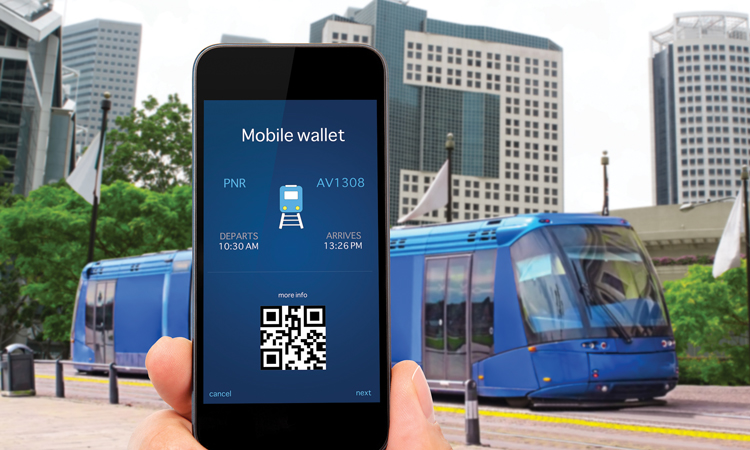The OSPT Alliance and the drive for open standards in ticketing
- Like
- Digg
- Del
- Tumblr
- VKontakte
- Buffer
- Love This
- Odnoklassniki
- Meneame
- Blogger
- Amazon
- Yahoo Mail
- Gmail
- AOL
- Newsvine
- HackerNews
- Evernote
- MySpace
- Mail.ru
- Viadeo
- Line
- Comments
- Yummly
- SMS
- Viber
- Telegram
- Subscribe
- Skype
- Facebook Messenger
- Kakao
- LiveJournal
- Yammer
- Edgar
- Fintel
- Mix
- Instapaper
- Copy Link
Posted: 10 December 2014 | Laurent Cremer - OSPT Alliance | No comments yet
The Open Standard for Public Transport™ (OSPT) Alliance1 is a global association working to advance transport ticketing from fragmented, national schemes to multi-modal, international and interoperable solutions, through the adoption of its CIPURSE™2 open standard. In this article, Laurent Cremer, Executive Director of the OSPT Alliance, talks about the association’s mission, explores its work globally to integrate open standards into existing ticketing infrastructures, and explains the long-term benefits this initiative will bring to the transport ecosystem. Looking closer to home, the article concludes with a focus on public transport authority Autoritat del Transport Metropolita (ATM) Barcelona, which discusses its support for open transport ticketing standards.


In every other area of technology, the introduction of open standards has spawned innovation and new opportunities for all players involved. Yet, in transport ticketing, proprietary solutions still reign supreme due to the localised nature of the requirements.
Across the world, however, transport authorities are being presented with a number of opportunities which conflict with this proprietary, traditional architecture. For example, how to integrate near-field-communication (NFC) contactless ticketing technology using mobile devices, support cross transport network – and even cross border – solutions, as well as increase public/private partnerships to offer customers the most innovative and relevant services. At the same time, operators are facing a number of challenges in regards to their automatic fare collection (AFC) systems, such as how to protect against increasing security threats, as well as the pressure to reduce expenditure and lengthy queues at the ticket barriers yet increase ridership.
The growing consensus is that fare collection technology is now mature enough to not have to rely on a single solution provider. Yet with the majority of AFC systems in place based on proprietary solutions, how can these opportunities by optimised and challenges successfully met?
Four years ago, the OSPT Alliance, founded by Giesecke and Devrient, Infineon Technologies, INSIDE Secure and Oberthur Technologies, announced the launch of CIPURSE, an interoperable, vendor neutral and secure AFC open standard. It was developed to directly tackle the unique problems faced by transport authorities and promote the use of open standards in transport ticketing. Fast forward to today and, at the time of writing, over 40 companies, across four continents form the organisation’s fast-growing membership to collectively drive the adoption of CIPURSE across the AFC landscape. Currently, there are six products certified in the market.
What is CIPURSE?
CIPURSE is an open security standard defined by the OSPT Alliance membership. It uses existing, proven open standards, including the ISO/IEC 7816 smartcard standard, the 128-bit Advanced Encryption Standard and the ISO/IEC 14443 protocol layer. The most up-to-date version of the standard, CIPURSE V2, is a layered, modular architecture with application-specific profiles each tailored for different use cases and the different needs and aspirations of transport operators:
- CIPURSE L supports single-ride or daily paper tickets.
- CIPURSE S supports rechargeable fixed-count or weekly plastic tickets.
- CIPURSE T supports longer-term smart card and smartphone-based commuter tickets.
Drawing from its global membership, OSPT Alliance has been able to develop CIPURSE as a fully interoperable and open standard, which enables technology providers to build upon its core functionality to differentiate their products. Products based on the different CIPURSE profiles can be integrated to an AFC system at any time and can be implemented separately or together to provide transport operators with the greatest product flexibility. Because they are derived from the same set of specifications, products from different providers will be fully interoperable with each other.
Simply put, CIPURSE is working to create an open source environment that eases connections between service providers and transport operators, encourages a more competitive marketplace and fosters the next generation of secure, cost-effective and flexible fare collection technology.
What does a future based on CIPURSE look like?
Today, AFC systems have the potential to become the contactless killer application, enabling new business models for transport operators. This a subject which is explored in depth in the OSPT Alliance’s recent whitepaper, titled: Shifting the Ticketing Paradigm – CIPURSE™ Brings Mobility and Security to Transit Ticketing Systems’, available to download for free from the association’s website1. To benefit, however, transport operators and authorities must be prepared to invest in services and infrastructure that allow interoperability while encouraging consumer loyalty.
What makes CIPURSE such an attractive prospect is that it can be integrated with, rather than replace, an existing ticketing system. Transport operators and authorities can therefore protect their existing infrastructure investments while evolving to interconnect digital consumer channels. Today’s public transport ticketing capabilities can create a strong foundation for continuing integration between wider digital ecosystems, such as fare collection and payment; payment and loyalty; fare collection and security; and a host of others.
And this is just the beginning. With a foundation based on the CIPURSE open standard, transport operators can benefit in many ways that were previously not possible. Take NFC-enabled mobile handsets – a technology which has the real promise of replacing cash and card payments for low-cost purchases. To support this, OSPT Alliance has defined CIPURSE mobile, enabling transport operators to enhance their systems to support mobile ticketing. The alliance recently released guidelines which provide everything developers need to implement and use the CIPURSE V2 open security standard when embedded in an NFC mobile device.
How is CIPURSE being used?
OSPT Alliance non-profit, evaluator member, ATM Barcelona, the authority responsible for all public transport operations in the city and metropolitan area of Barcelona, Spain, is one such transport authority recognising the importance of an open standards approach. Its soon-to-be launched T-Mobilitat ticket is set to replace all existing fare collection methods in place across the city’s transport systems, with one, multi-functional ticketing application. The new ticket is based on proven open standards, is interoperable for all modes of transport and up-to-date with the latest contactless technology and media. For the OSPT Alliance, the launch is significant as T-Mobilitat will incorporate CIPURSE, alongside other solutions.
Carme Fàbregas, CTO at ATM Barcelona explains why it has integrated the CIPURSE standard: “ATM Barcelona is taking the lead in adopting an open standards approach to our AFC system. By replacing the myriad of transport tickets currently in place with just one, multi-functional ticket, T-Mobilitat will effectively migrate to contactless media and other technology advances in order to meet the demands of our passengers, whilst promoting vendor neutrality and cross-system interoperability. We are laying the foundations for a seamless and interoperable system, which could be rolled out across the country in the near future.
“As an OSPT Alliance member, we share the association’s view that open standards are important. They allow us much more flexibility in sourcing products and services to meet the specific requirements of our system without compromising functionality across transport and mobility services. We have decided to adopt CIPURSE, alongside other solutions, as it meets all of our needs: it is secure; enables interoperability between modes of transport and between cities; is affordable and, crucially, provides long-term scalability.”
As has been witnessed by ATM Barcelona, by adopting CIPURSE transport operators can benefit from a wider choice of technology suppliers and vendors and help drive transport ticketing to a future which is ideally convenient for the consumer. The open standard fosters a more competitive marketplace for the solutions provider, future proofs their solutions and reduces their own expenditure costs.
Public transport operators looking to integrate new products into their AFC systems should look out for the ‘CIPURSE Certified’ logo as a sign of interoperability.
References
- osptalliance.org
- To learn more about CIPURSE and how to integrate the technology today, watch the OSPT Alliance webinar: ‘The future of transport ticketing systems: a technical introduction to CIPURSE™’, available free-of-charge from the OSPT Alliance website1.
Biography


Related topics
Multimodality, Passenger Experience, Ticketing & Payments
Issue
Issue 6 2014
Related organisations
OSPT Alliance
Related people
Laurent Cremer








